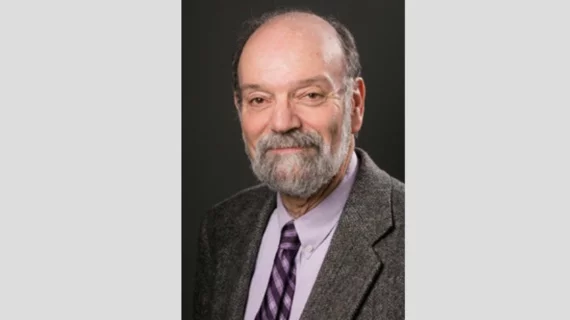Veteran cardiologist, viewed by many as the founder of nuclear cardiology, dies at 82
Barry L. Zaret, MD, an influential cardiologist, accomplished poet and veteran of the United States Air Force, died on Oct. 20. He was 82 years old.
Zaret was a founding member of the American Society of Nuclear Cardiology (ASNC) and the first editor-in-chief of the Journal of Nuclear Cardiology. His work was published in a variety of journals over the years, and he wrote multiple books. His book on preventive cardiology aimed at the general public, Heart Care for Life: Developing the Program that Works Best for You, was released in 2006.
Zaret most recently worked as a professor emeritus of medicine at Yale School of Medicine. The school launched a Professor Barry Zaret Honorary Lecture in his honor in early 2022.
“During Dr. Zaret’s long and exhilarating scientific career, he made numerous contributions to cardiovascular medicine and arguably founded the field of nuclear cardiology,” according to a loving tribute on the Yale School of Medicine website. “His 1973 paper in the New England Journal of Medicine, “Noninvasive Regional Myocardial Perfusion with Radioactive Potassium—Study of Patients at Rest, with Exercise and during Angina Pectoris,” set a precedent for the emerging field of noninvasive nuclear cardiology … His research has been instrumental to our current understanding of coronary blood flow physiology, ventricular function, management and risk assessment of cardiovascular disease, and molecular imaging.”
A separate tribute on the ASNC website highlighted Zaret’s artistic side, including his poetry and paintings. Multiple books of Zaret’s poetry were published over the years.
More information on his art is available here.
The ASNC tribute included a thorough interview with Zaret from 2005. The conversation examined his entire life and career up to that point, ending with this thoughts on the future of cardiology.
“I think we’re going to get closer to targeted therapies based upon better understanding of the biology of disease,” he said. “I think the genetic aspects of disease are going to be far more important. There will be a lot more individualized therapy. I think pharmacogenomics is going to be a big issue. We’re going to learn how to diagnose diseases at earlier stages … We’ll continue to improve on patient outcomes.”


